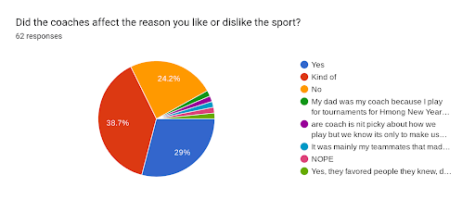Is the Pressure of Sports Becoming Lethal?
January 18, 2023
Injury, pressure to perform, over training, lack of free time, and stress from schoolwork. These are all variables that go into what makes a student athlete become depressed. Studies show that over half of student athletes in college all over the world show signs or get diagnosed with depression every year. Further more sports can eventually cause mental illness in college athletes because of pressure built up from playing for so long.
Starting Young
Starting your child in sports young is encouraged, but is it the right thing to do? Starting them young can cause your child to become pushed a little too close to the edge. How does all of this start? The end result of athletes becoming depressed,suicidal, and have many other mental health issues, can be caused from a numerous amount of things.
One of the main ways it starts is with the parents of the children and how young they decide to get their child involved in sports. HealthyChildren.org suggests that you get your child involved as early as 6 years of age. They only claim this because it is common that right around this age kids gain enough motor skills to give an effort towards a sport. But is this really the right decision? What if it is not something that they truly want to do? Not only that but with sports, comes the seasons a sport is played during.
For example, Jack, a twelve year old enrolled in sixth grade, is a goalie for his hockey team in Wisconsin. He practices twice a week with almost every weekend occupied with tournaments all around his district. Not just that, but his hockey season lasts from early October to late March. Some of his friends even go as far as competing on a summer hockey team, this making it almost a year round sport that they play at only twelve years old.
A story told by Jacob Bellin a junior at SPASH, exposes that when started at a reasonable age, sports can turn out to be something that an athlete can look forward to. His parents got him started in fourth grade playing soccer and lacrosse… He explains that at age nine, he was able to have the drive to be physically and mentally competitive during his games and practices. “When I was younger I was at a family reunion and I saw my older cousins playing lacrosse and I asked to try it out. That made me want to play the sport so my parents got me involved.” So based off of the actual drive of wanting to play lacrosse, Jacob has been able to continue his passion for it all the way to junior year of highschool so far.
On another note… i9sports.com was asked the question of whether or not kids playing sports year round is a good thing. They came to the conclusion that in their opinion, it is beneficial. They backed this up by saying that it brings benefits physically, cognitively, mentally, and socially.
All in all it is up in the air whether or not it is advantageous to engage your child in this kind of activity. But do the potential side effects of being exposed and pushed in a sport for so long worth the potential outcome? How much is too much when it comes to sports at a young age?
What can happen?
Pressure from teammates, friends and family can lead to deadly outcomes. The true concern is how to reduce suicides and depression in college athletes before it is too late. To cut off any potential to have this be a child’s future, is to encourage parents to not force their kid into a sport. In the past few years the amount of reports of death by suicide among college students has risen. A recent victim is Lauren Bernett.

She was 20 years old when she was named Colonial Athletic Association Player of the Week. Even with outstanding performances as a softball college athlete, mental health played a big role behind closed doors, and eventually lead to her committing suicide.
With the growing number of suicides in college athletes, cross country runner Kate Intile came to the realization of all the times her own sport belittled her. She said that she had been body shamed, pushed through injuries, and made to feel worthless when her times did not match up. “It was only a matter of time,” Intile said.
The recent Corona pandemic has also caused these players to gain self doubt. Instead of being able to go to the gym everyday and practice with their team, instead during these times athletes were forced to stay home. Worrying about if their competitors were doing something they were not to train and therefore advance quicker, was a constant worry. Sixty two SPASH students took a survey on mental health in athletes. They were asked if the coach they have/ had affected the reason they like or disliked the sport. Over 60% said that they were either definitely affected by their coach, or were leaning towards that being the reason. Things like bullying, self doubt, and in some cases devastating coaching causes these players to be faced head on with mental health issues.

How can we fix this?
Some people may not think they need to get involved on the issue of someone’s mental health, but in the end everyone needs to work on reducing suicides and depression in athletes. The true concern is how to reduce suicides and depression in athletes before it is too late. In order to cut off any potential to have this be a child’s outcome, we need to encourage parents to not force their kid into a sport. Experts say that it is best for the parents to let the coaches coach, and to be aware of if a kid is not showing interest anymore. Not only that, but let them choose what their passions are. Typically you will know if your child is interested in a sport or not. If they are always ready to go to practice or games without having to be dragged out of the house, if they enjoy their teammates, if they keep trying, they have enthusiasm, and especially if they care about the game. If any of the following are not shown, make sure to sit down with your child and talk about if the sport they are playing is something they are interested in continuing to do. If they choose that they don’t want to play anymore, be content with their decision and move on to something else. Because who knows… one day that decision could change their lives forever. One day that conversation could save their life.






































































